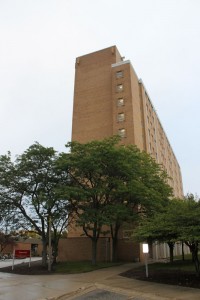
Now, with Cramer Hall housing about half of what it was built to carry, it looks as though that assumption might be correct. However, according to Bryan Marquardt, Ferris’s Director of Housing and Residence Life, there’s no reason for the university to worry.
“Our current occupancy on campus is over 90 percent, which is good,” said Marquardt. “While we would like to be at 100 percent we feel 90 is a good percentage. All halls are above 50 percent occupancy some are at 100 percent.”
While not addressing the alleged situation at Cramer, Marquardt went on to explain that Ferris is always looking at the incentives to offer to students.
“We are currently evaluating our rates for the 2015-16 school year and our incentives. The campus plan is to set the rates and incentives by mid-October and start our Early Bird contracting in early December for the upcoming year,” he went on. “The University has for the past three summers upgraded almost all our Residence Halls to include new carpeting, furniture, study rooms, front desk areas, robust wireless, and much more.”
Marquardt also made a point to mention that with living on campus comes internet, cable, water, electricity and heating all included in the cost of living in campus residences. He said that, all things considered, campus living is competitive with the cost of living off campus.
Morgan Kelley, a senior in the respiratory care program, agreed with Marquardt’s statement.
“You notice the difference [in cost],” said Kelley, “but it’s not an extreme difference.”
Kelley, who has lived off campus for two years says that she moved off campus for the benefit of gaining life experience and not because campus facilities were lacking.
“I really enjoyed living on campus because of how close everything is.” Kelley said. “I felt I needed more experience paying for my own stuff and maintaining my own place.”
In spite of the assumptions that students would be leaving campus more quickly and eagerly than ever, the consensus seems to be that campus has more benefits then drawbacks. The coming years and addendums to policy will dictate if such a view continues into the future.
